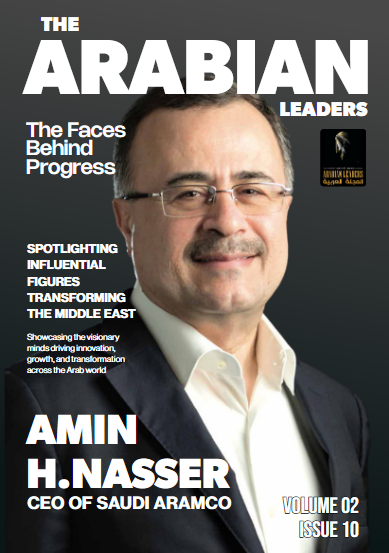Zia Imran: Driving Data-Driven Innovation and Sustainable Technology in Pakistan
Leading Analytics and Advisory at CERP
As the Executive Vice President at the Centre for Economic Research in Pakistan (CERP), Zia Imran spearheads the Analytics and Advisory Practice. His role involves assisting both public and private sector entities in leveraging data-driven, evidence-based analytical frameworks to enhance decision-making processes . Under his leadership, CERP has developed tools like the Economic Vulnerability Assessment and the Targeted Instruction in Pakistan (TIP) Tool, aiming to improve policy outcomes and service delivery .
Entrepreneurial Ventures: Sigmaud and Zaheen Machines
Zia co-founded Sigmaud, a Data Science and AI company dedicated to providing advanced analytics solutions to businesses. Prior to this, he established Zaheen Machines, focusing on creating IoT devices powered by machine learning to promote energy efficiency. The company’s flagship product, Jal Bujh, transforms traditional water heaters into smart, energy-efficient appliances, addressing energy conservation challenges in Pakistan .
Mentorship at SPRING Accelerator
Zia led the operations of SPRING Accelerator in Pakistan, where he mentored 11 socially-focused startups. He guided these enterprises in utilizing data analytics, technology, and human-centered design to scale their businesses effectively. His mentorship emphasized optimizing product design, feature selection, marketing strategies, and service delivery, fostering innovation and sustainability .
Diverse Expertise and Global Experience
With a robust background in product strategy, new product development, supply chain optimization, and machine learning systems, Imran has advised Fortune 500 companies on enhancing supply chain and customer relationship management. His professional journey includes significant roles in Silicon Valley, serving at Oracle, Altera (now Intel), and various startups, bringing a wealth of global experience to his endeavors in Pakistan .
Academic Credentials
Zia holds a Bachelor’s degree in Electrical Engineering from the University of Engineering and Technology, Lahore. He furthered his education with a Master’s degree in Computer Engineering from Cornell University and an MBA from the University of Chicago, equipping him with a strong foundation in both technical and managerial disciplines.
Personal Interests
Beyond his professional commitments, Imran is passionate about sustainable living. He engages in part-time farming and is an enthusiast of electric-powered automobiles, reflecting his commitment to environmental sustainability and innovation.
Zia’s multifaceted career, encompassing leadership in data analytics, entrepreneurship in AI and IoT, and mentorship in social innovation, positions him as a pivotal figure in Pakistan’s journey towards sustainable development and technological advancement.
Championing a Data-Driven Future for Pakistan
Zia’s career has been a living testament to the transformative power of data in public policy and business innovation. At the heart of his work lies a deep conviction: that meaningful progress in Pakistan—be it economic, social, or technological—depends on the intelligent application of data. His leadership at the Centre for Economic Research in Pakistan (CERP) exemplifies this belief.
By helping government departments and private firms adopt evidence-based decision-making frameworks, Imran has not only brought academic rigor into mainstream policy but also increased the capacity of institutions to deliver measurable outcomes. From education-focused tools like the TIP (Targeted Instruction in Pakistan) framework to economic vulnerability dashboards, his interventions have paved the way for smarter governance. His impact is not theoretical; it is measurable and deeply integrated into the workflows of institutions that matter.
Revolutionizing the Use of Technology for Social Impact
Imran’s ventures have often straddled the space between tech innovation and social purpose. His involvement with SPRING Accelerator perfectly encapsulates this ethos. During his tenure, he provided data-centric strategic advisory to 11 socially conscious startups, helping them scale through lean experimentation, analytics, and design thinking.
What sets his approach apart is the way he integrates human-centered design into traditionally rigid systems. For him, technology is not just about automation or intelligence—it’s about empathy, usability, and inclusion. Whether optimizing product features or creating customer-centric service channels, he helped these startups retain their impact-driven mission while achieving business viability.
IoT for Good: The Jal Bujh Innovation
One of Zia’s most lauded technological innovations is Jal Bujh, a smart appliance developed under the Zaheen Machines umbrella. In Pakistan, millions of homes rely on outdated and inefficient water heaters. These devices consume enormous amounts of energy and contribute to the country’s ballooning energy crisis.
Zia saw an opportunity to blend Internet of Things (IoT) technology with machine learning to create a retrofit device that could convert legacy water heaters into intelligent, energy-efficient appliances. The resulting solution wasn’t just clever—it was vital. Jal Bujh became a proof-of-concept that socially impactful, sustainable tech can emerge from Pakistan and be scaled at a national level.
Scaling Innovation Through Sigmaud
Co-founding Sigmaud, a data science and AI consultancy, marked another leap in Zia’s entrepreneurial journey. While SPRING and Zaheen focused on social and environmental impact, Sigmaud took his philosophy into the corporate sphere. Through this venture, he helped companies harness data for smarter decisions in areas like customer acquisition, logistics, supply chain management, and pricing models.
Sigmaud allowed Imran to act as both a strategist and technologist. He didn’t just offer algorithms—he offered end-to-end solutions. From data engineering pipelines to AI-enabled decision tools, his work empowered clients to internalize data literacy across functions. With Sigmaud, he helped shift the corporate mindset from intuition-based planning to insights-driven growth.
Mentoring the Next Generation of Tech Leaders
While his own ventures have been pioneering, Zia Imran’s legacy is equally defined by his mentorship. Whether through formal programs like SPRING or informal engagements across Pakistan’s startup ecosystem, he has consistently shared his expertise to uplift others.
He is widely regarded as a thought leader in product management, AI application, and innovation strategy. As a mentor, he focuses not just on technical execution but on vision alignment and market relevance. Many of the founders he’s guided have gone on to win grants, secure investments, and expand regionally—all underpinned by frameworks he helped them build.
His mentorship style blends Silicon Valley practicality with emerging market sensitivity. He encourages founders to remain frugal yet scalable, visionary yet grounded. This balanced approach has made him one of the most sought-after advisors for mission-driven startups in South Asia.
Driving Public-Private Synergy
One of Zia Imran’s defining contributions lies in how he bridges the gap between public institutions and private innovation. In Pakistan, where government departments often lack the agility to innovate, he has brought in startup-style problem-solving. Simultaneously, he’s encouraged startups to think beyond venture capital and explore how they can plug into national challenges like energy shortages, education gaps, and rural infrastructure.
Through his work at CERP and previously at the Pakistan Software Export Board (PSEB), Imran has advocated for tech entrepreneurship that complements state objectives. His time as Chairman of PASHA also saw the promotion of Pakistan’s software sector, both locally and internationally, laying the foundation for today’s tech boom.
Human-Centered Engineering and Design
Zia Imran’s academic pedigree—engineering from UET Lahore, graduate work at Cornell, and an MBA from the University of Chicago—reflects the rare blend of technical depth and strategic breadth he brings to every initiative. But beyond formal education, his philosophy is anchored in human-centered development.
He believes engineering should begin with empathy. This is evident not only in his IoT solutions like Jal Bujh but also in how he structures decision-making systems for organizations. For him, a model that doesn’t account for user experience, social dynamics, or behavioral insights is incomplete. His holistic lens is what gives his work lasting impact—he designs for adoption, not just deployment.
Promoting Sustainability Through Tech
Zia Imran doesn’t just talk about sustainability—he lives it. As a part-time farmer and electric vehicle enthusiast, he has embedded eco-consciousness into his lifestyle and work. Whether promoting energy-saving appliances or encouraging startups to go green, he consistently highlights the role of technology in combating environmental degradation.
His sustainability advocacy goes hand in hand with his economic vision. In his worldview, innovation that ignores climate resilience is short-sighted. From resource-efficient agricultural tech to smart energy solutions, he continues to champion ventures that align profit with planet.
Evangelist of Evidence-Based Decision Making
At the core of everything Imran does is a commitment to evidence. Whether advising startups, working with governments, or consulting Fortune 500 firms, he returns to the same north star: let the data speak. In a region where gut-driven decisions still dominate, his push for analytical rigor has been revolutionary.
His thought leadership has helped instill a culture of experimentation, hypothesis testing, and iterative learning in institutions previously resistant to change. More importantly, he’s shown that data is not just a tool for scale—it’s a vehicle for fairness, transparency, and long-term impact.
Zia Imran stands as a pioneering figure in Pakistan’s technological and entrepreneurial landscape, seamlessly blending deep technical expertise with a vision for social impact. His work embodies the transformative potential of data-driven decision-making, not only in accelerating business growth but also in enhancing governance, sustainability, and inclusive development. Through ventures like Zaheen Machines and Sigmaud, he has demonstrated how innovative technologies—ranging from IoT to AI—can be harnessed to address real-world challenges unique to Pakistan and similar emerging markets.
Conclusion
Beyond his entrepreneurial achievements, Imran’s role as a mentor and advisor has helped shape the next generation of Pakistani innovators, instilling values of empathy, evidence-based strategy, and human-centered design. His leadership across public and private sectors illustrates the power of collaboration in driving scalable solutions that bridge gaps between government, industry, and civil society.
Zia Imran’s commitment to sustainability and energy efficiency, coupled with his advocacy for transparency and accountability, highlights a holistic approach to technology that considers both economic and environmental imperatives. Whether through pioneering energy-saving products, championing digital transformation in public institutions, or fostering ecosystems for social enterprises, his contributions continue to ripple across Pakistan’s development narrative.
In a rapidly evolving global tech ecosystem, Zia represents a vital link between Silicon Valley innovation and the unique needs of developing economies. His work underscores that with vision, expertise, and empathy, technology can be a powerful tool for equitable progress, empowering not just businesses but entire communities. As Pakistan continues to navigate its digital future, leaders like Imran Zia will remain central to shaping a more inclusive, efficient, and sustainable tomorrow.








